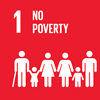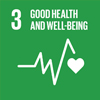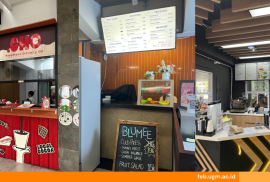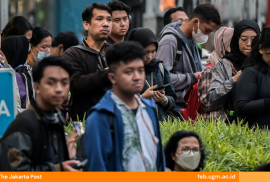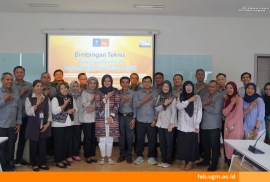
Over the past decade, the halal market has emerged as a key driver of the global economy. The global halal market has experienced significant growth, with a trade value of USD 3.1 trillion in 2018 and projected to reach USD 5.0 trillion by 2030. This indicates that the halal economy is no longer viewed solely as a religious issue, but has evolved into a global economic strategy encompassing food, pharmaceuticals, cosmetics, finance, tourism, and international supply chain management.
However, the main challenge for the halal market lies in more intensive international collaboration to drive innovation, strengthen cross-border ecosystems, and build a progressive, dynamic, and sustainable future for the halal economy.
In response to these challenges, Gadjah Mada University, through its Islamic Economics and Halal Industry Study Program at the Graduate School and Faculty of Economics and Business, in collaboration with Universiti Kebangsaan Malaysia, is organising the 3rd International Conference on Islamic and Halal Economic Studies (ICIHES) 2025. The international conference will be held on 4–5 November 2025 at the Marriott Hotel Yogyakarta, with the theme Halal Economy: A Way Forward Towards a More Progressive, Dynamic, and Viable Future.
The Vice Rector of UGM for Education and Teaching, Prof. Dr. Wening Udasmoro, S.S., M.Hum., DEA., opened the event by stating that the halal economy reflects a way of life in which prosperity is achieved alongside dignity, innovation, and an economic system built on the foundations of trust, justice, and responsibility. In today’s world, characterized by uncertainty, digital disruption, and widening inequality, the principles contained in the halal economy offer not only stability but also direction and hope. However, the future of the halal industry cannot depend solely on market expansion. It must be built deliberately through a strong intellectual foundation, integrity in governance, responsible technological and business practices, and collaboration that emphasises shared learning rather than competition.
Indonesia, she continued, with its rich cultural heritage and dynamic Muslim community, has excellent potential to make significant contributions to the transformation of the halal economy. However, this leadership must be built through intense research, synergy between academia and industry, and the development of a generation of scientists with integrity.
“We hope that the conference will bring meaningful insights, sustainable cooperation, and new commitments to build a more just, ethical, and prosperous global society,” she said.
The Chair of the ICIHES 2025 Committee, Dr. Reni Rosari, M.B.A., stated that this conference would serve as a forum for academics, researchers, practitioners, and stakeholders from around the world to discuss developments in research, policy, and practice in Islamic economics and the halal industry.
Furthermore, this conference also serves as a platform to explore new ideas and present research related to the role of the halal economy in sustainable development, poverty alleviation, health, economic growth, and innovation.
Through ICIHES 2025, strategic collaboration among academics, industry, and policymakers can be enhanced. In addition, it is also expected to produce research-based recommendations for the development of effective halal economic policies,” explained the Head of the Doctoral Programme in Islamic Economics and Industry at UGM.
This conference featured Prof. Dr. Anggito Abimanyu, M.Sc. (Chair of the LPS Board of Commissioners) as the keynote speaker. In addition, the conference also invited Prof. Emeritus Dr. Kosugi Yasushi (Ritsumeikan University, Japan) and Prof. Dr. Abdul Ghafar Ismail (Universiti Kebangsaan Malaysia) as main speakers.
Over two days, the conference featured keynote speeches, plenary sessions, panel discussions, and parallel paper presentations that discussed current issues, including Islamic finance and halal fintech, halal tourism, halal supply chains, digital innovation, and halal regulation and governance. ICIHES 2025 is a collaboration between Gadjah Mada University and Universiti Kebangsaan Malaysia (UKM), along with several international partners, including Ritsumeikan University and Kyoto University from Japan. This event also received support from various institutions, including the DIY Sharia Economic Society (MES), Global Gotong Royong Tetrapreneur Indonesia (G2RT), and World Halal Industry and Trade Alliances (WHITA).
ICIHES is held periodically as a platform for knowledge exchange, strengthening research networks, and formulating strategic recommendations for inclusive and sustainable halal economic development. This year’s ICIHES event, held in Yogyakarta, marks the third event and the first held in Indonesia, following the first and second events held in Malaysia.
The ICIHES 2025 series consists of three main stages. Road to 3rd ICIHES, from February to November 2025, includes Halal Cooking Demo & Talkshow (Halal CDTS); Halal Zone Commitment (KKH) with MES DIY and G2RT Villages/Hamlets throughout DIY; MES DIY Halal Ambassadors; Halal Driving Forces, and Halal Business Plan Competition (HBPC). Next, the PhD Colloquium on 3 November 2025 will feature scientific dialogue between doctoral researchers from Indonesia, Malaysia, and Japan in an academic atmosphere that upholds scientific etiquette. The highlight will be the ICIHES Main Conference, taking place on 4–5 November 2025 at the Marriott Hotel Yogyakarta, featuring keynote sessions, ASEAN-level policy panels, and international research discussions.
Reportage by: Kurnia Ekaptiningrum

